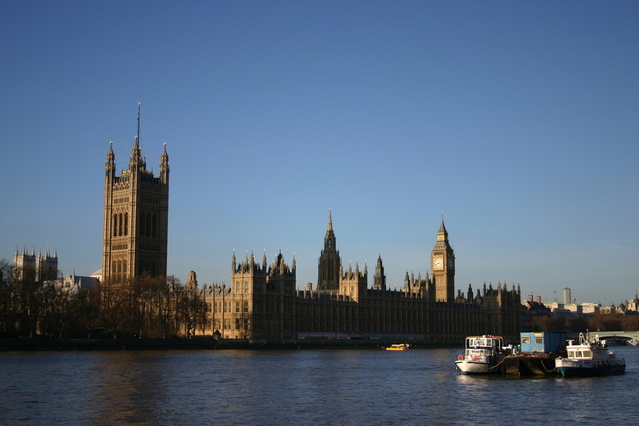August 21, 2015
 |
| Photo by Freeimages.com/Guillaume ROUX |
Lizzie Porter, The Daily Telegraph, August 21, 2015
The British embassy in Iran and the Iranian embassy in London are to reopen this weekend, paving the way for easier travel to the Middle Eastern country.
Foreign Secretary Philip Hammond will visit Iran this weekend to raise the flag over the British embassy in Tehran for the first time in four years, while the Iranian embassy and consulate in London are also expected to reopen fully.
Diplomatic ties between Britain and the Islamic Republic suffered a heavy blow in 2011, when the British Embassy in Tehran was stormed and ransacked by a group of hardline student protestors, and Iranian diplomats were ordered to leave London in response.
Since then, Britons wishing to visit Iran – which can boast the most Unesco World Heritage sites of any Middle Eastern country – have faced a complicated and expensive visa application process, with entry documents issued abroad.
“With the Iran Embassy in London reopening the necessity for British travellers to go overseas for visas may become a thing of the past”, said David McGuinness, director of tour operator Travel the Unknown, and a frequent visitor to Iran. ”This will make travel to Iran more accessible and the already increasing numbers will hopefully continue to rise.”
In Iran, although it will be some time before full consular services for Britons are available, the reopening is a step in the right direction for travellers’ peace of mind.
Until now Britons who have travelled to Iran have done so without the reassurance of a British presence to provide assistance in the event of difficulties. The Foreign Office currently recommends that travellers contact the Swedish embassy or the embassy of any other EU member state in Tehran in the event of an emergency.
The reopenings are the latest sign of improving relations between the UK and Iran following an historic nuclear agreement reached last month. The Foreign Office also relaxed its stance towards travel to the Iran, now considering most of the country safe for British travellers except for border areas with Iraq, Afghanistan and Pakistan.
At present it is unclear if the Iranian embassy and consulate in Kensington, London, will immediately start to issue tourist visas for Britons wishing to visit the country, but Nasrin Etemadi, director of UK-based tour operator Persian Voyages, said “it would not be long” and expects more information next week.
Zohreh Majidian, director of Magic Carpet Travel, an operator based in Ascot, also said more information about obtaining tourist visas for Iran from London would be likely soon. Contacts at the Iranian Consulates in London and Berlin said changes were imminent, but that an exact timeframe was as yet unclear. The Foreign Office said it had no information on the situation. Their Iran travel advice page states that the consulate “may be able to offer further advice on where to apply for visas”.
In practice, since 2011 those wishing to go to Iran have had to follow a convoluted process that involves filling out visa application forms, waiting for an authorisation code from the Iranian Ministry of Foreign Affairs, and then travelling to an Iranian embassy abroad, typically in Dublin, Frankfurt or Paris, to have the visa stamped in their passport. An alternative option is the use of a visa processing agency, but this adds to the already high €180 visa fee.
Iran has a wealth of historical sites, museums and remarkable architecture that are proving an increasing draw for western tourists, with travel companies reporting increases in interest since the nuclear deal was reached.
Hadi Jansouz, director of Tehran-based tour operator How to Iran, said that the re-opening of embassies would improve travel confidence between the UK and Iran. He said that the granting of visas is one of the most important components of normal embassy business, so resolving the issues currently preventing this would be key. “One of the most important outcomes of the nuclear deal and reopening of the embassy will be the transition of attitudes toward Iran”, he added, in the hope that tourist centres in the consulates on both sides would also open.
This year Maymand, an area of land inhabited by semi-nomadic people, and the archaeological site of Susa were placed on Unesco’s list of World Heritage Sites, adding to the attractions already on this list, such as the Throne of Solomon and Persepolis.
The Iranian government has stated it wishes to attract up to 20 million tourists per year by 2025. But although the Rotana hotel group recently confirmed that it is to open four hotels in Iran, the tourism and hotel infrastructure remains underdeveloped, in part because of the sanctions that have prevented foreign investment. The ninth Tehran International Tourism Exhibition is due to take place in the Iranian capital next February, with the aim of selling Iran as a tourist destination.
But aircraft operated by Iranian carriers are also ageing, discouraging tourists from taking internal flights and therefore limiting their ability to travel around the vast country, which is only slightly smaller than Alaska. However, the deputy chief of the Iranian civil aviation authority was this month quoted as saying that the country would be buying 80 to 90 Airbus and Boeing passenger planes per year to replace its old aircraft.
Eventually, this is may mean that more flights from London become available – direct services are currently limited to a flights on specific Iran Air aeroplanes that have been cleared for travel in European airspace – and internal flights will be more feasible. Mr Jansouz from How to Iran hoped that the reopening of the embassy, “will pave the way for direct airline settlement between the two countries to connect Iran’s capital to London.”
Iran’s historical sites remain a draw, however good or bad its infrastructure. Jeremy Seal, who was on the first private train tour into Iran last year, described Isfahan’s Sheikh Lotfollah Mosque as “ a masterpiece of Safavid art, where a perfect shaft of sunlight lent the peacock at the apex of the magnificent tiled dome the most lustrous of feathered tails.” He added that his visit to Iran “would have been worthwhile had it only been for the courtesies we received there, from reporters and station masters, students and stallholders, which showed that there need not be bad blood between us.”
Although the loosening of travel restrictions and reopening of embassies will likely increase the number of British travellers holidaying in Iran, some will still be put off by the restrictions imposed by law. Women must wear the hijab at all times, shorts are frowned upon for either sex, alcohol and pork products are prohibited, and anyone with evidence of travel to Israel in their passport will not be permitted entry.
British passport holders are unlikely to be granted a visa – in London or issued at a foreign embassy – for independent travel, although as relations improve this is once restriction that is likely to be relaxed.
This article was written by Lizzie Porter from The Daily Telegraph and was legally licensed through the NewsCred publisher network.
![]()
What do you think of this $type?










